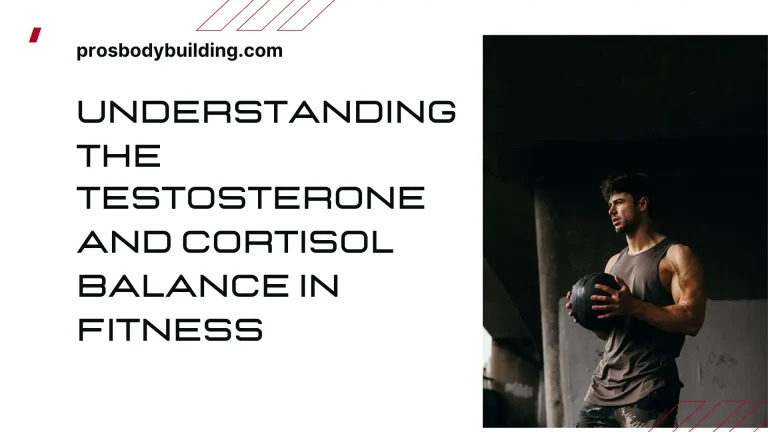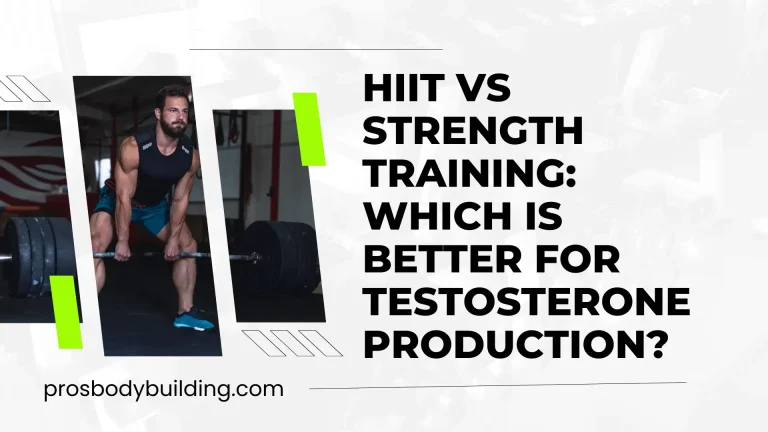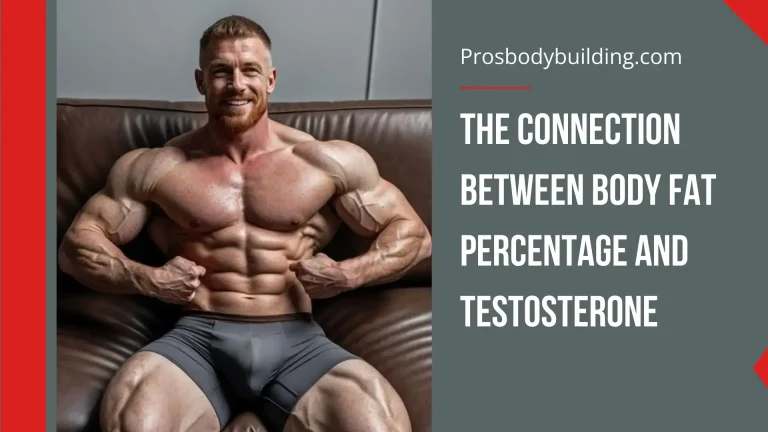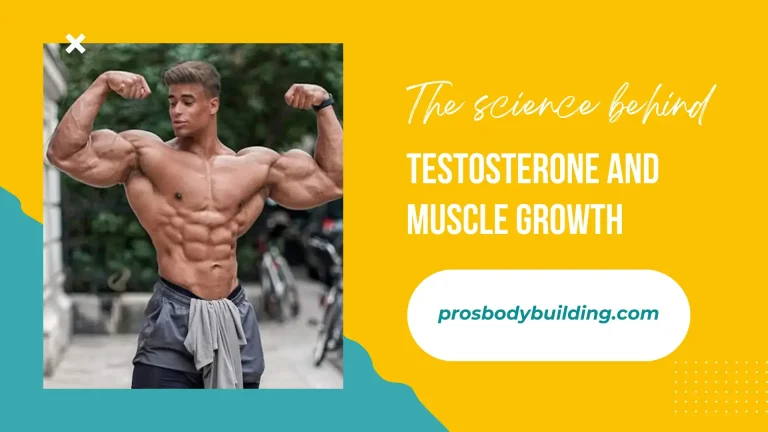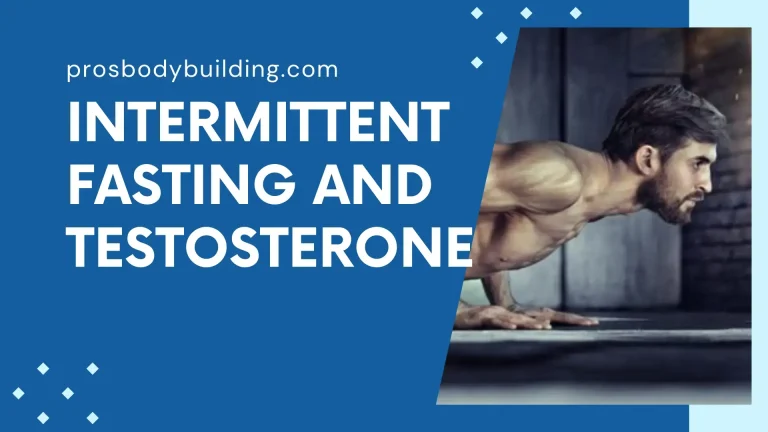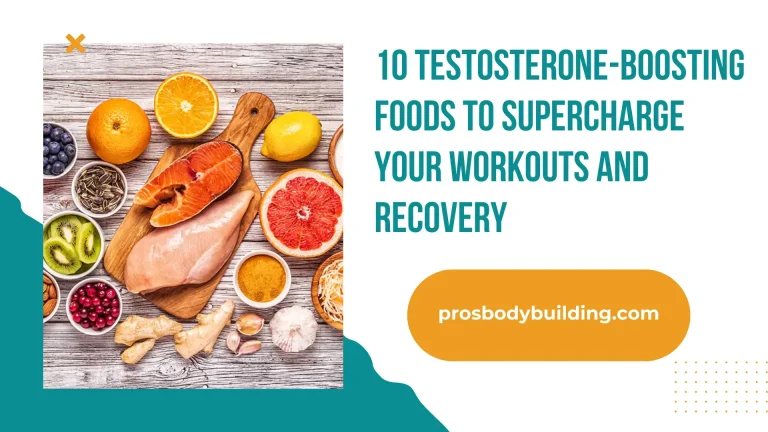Overtraining and Testosterone: The Hidden Danger for Fitness Enthusiasts in 2024
Holy smokes, fellow gym rats! Are you pushing yourself to the limit, chasing those gains like there’s no tomorrow? Well, hold onto your protein shakers, because I’ve got some mind-blowing news that’ll make you rethink your entire workout routine.
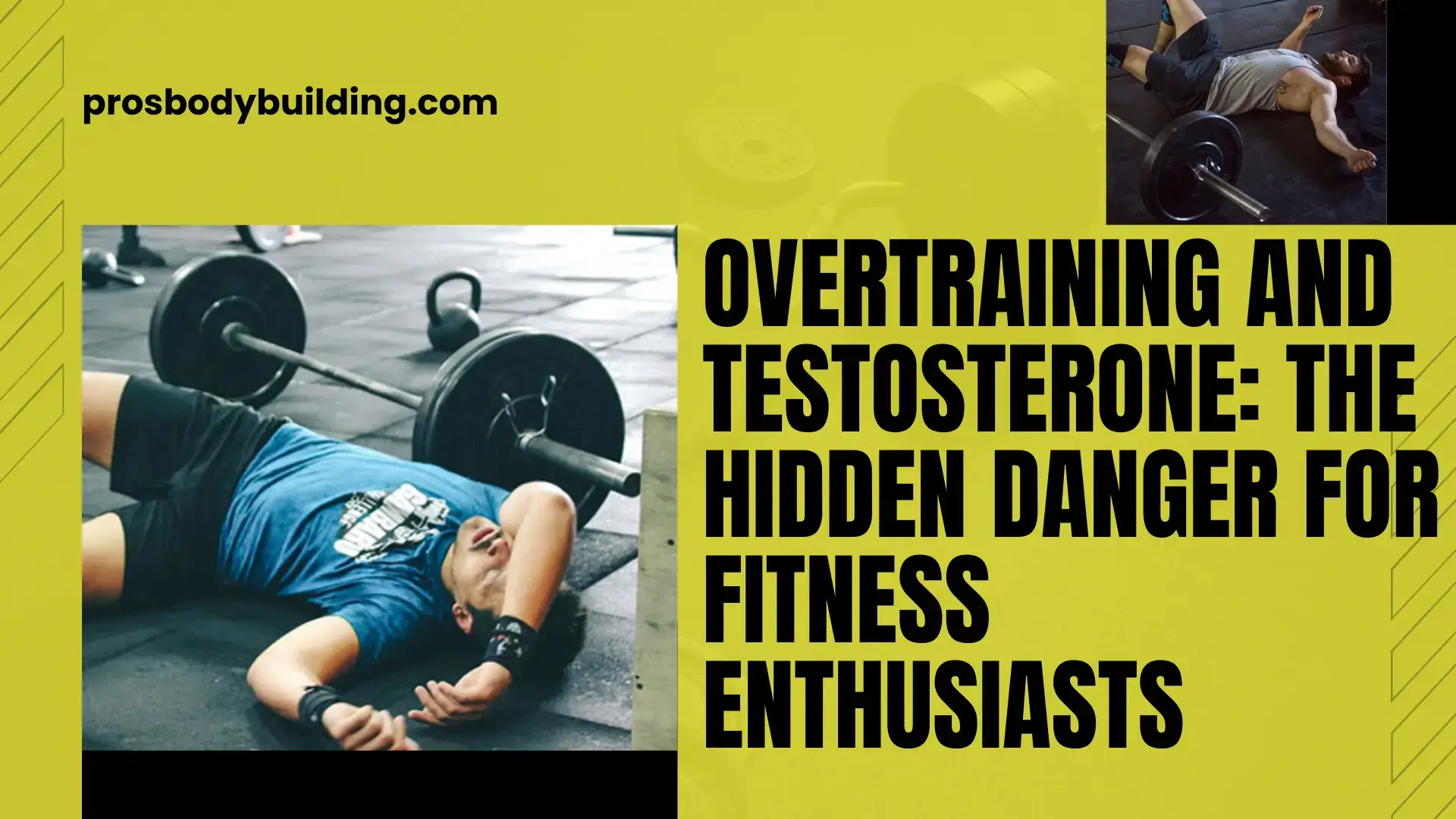
Picture this: I’m scrolling through my phone one day, sipping on my post-workout smoothie, when BAM! I stumble upon this crazy study from the Journal of Applied Physiology. Get this – excessive training can lead to a jaw-dropping 40% decrease in testosterone levels. Yeah, you heard that right. FORTY. PERCENT.
As someone who’s been hitting the gym religiously for years, this revelation hit me like a ton of bricks. I mean, here we are, busting our butts day in and day out, thinking we’re doing our bodies a favor, when in reality, we might be sabotaging our own progress!
But don’t freak out just yet, my friends. In this article, we’re going to dive headfirst into the wild world of hormone balance, explore the sneaky dangers of overtraining, and uncover how you can maximize your fitness results without turning your endocrine system into a hot mess. Trust me, by the time we’re done here, you’ll be equipped with the knowledge to become a lean, mean, testosterone-optimizing machine. So, grab your favorite post-workout snack, and let’s get this show on the road!
What is Overtraining Syndrome?
Alright, let’s break it down, shall we? Overtraining Syndrome isn’t just some fancy term fitness gurus throw around to scare you – it’s the real deal, and it’s sneakier than that friend who always skips leg day.
Definition of overtraining syndrome:
Think of it as the body’s way of throwing a temper tantrum. You’ve pushed too hard, too fast, for too long, and your body is basically saying, “Dude, enough already!” It’s when the delicate balance between training and recovery gets totally out of whack.
Common signs and symptoms:
Ever feel like you’ve been hit by a truck, even though you haven’t changed your routine? Constant fatigue, persistent muscle soreness, and a sudden urge to bite everyone’s head off might be your body waving red flags. Oh, and let’s not forget the joy of insomnia and loss of appetite – because who needs sleep and food, right?
Physiological and psychological effects:
It’s not just your muscles that suffer. Your immune system takes a nosedive (hello, constant colds!), your heart rate goes haywire, and your hormones throw a wild party – and not the fun kind. Mentally, you might feel like you’re stuck in a fog, with the motivation of a sloth on a rainy day.
Difference between overtraining and overreaching:
Here’s where it gets tricky. Overreaching is like dipping your toes in the danger zone – you push hard, feel beat up, but bounce back after a bit of rest. Overtraining? That’s like cannonballing into the deep end and forgetting how to swim. Recovery takes way longer, and the effects can linger like that guy who doesn’t know when to leave the party.
The Role of Testosterone in Athletic Performance
Listen up, because this is where things get juicy – and I’m not talking about steroids!
Overview of testosterone’s functions in the body:
Testosterone isn’t just about bulging biceps and a Barry White voice. This powerhouse hormone is the maestro conducting your body’s symphony of awesomeness. It’s involved in everything from building muscle and burning fat to keeping your mood lifted and your mojo flowing.
How testosterone affects muscle growth and recovery:
Ever wonder why some people seem to pack on muscle just by looking at weights? Testosterone is the secret sauce. It’s like a general rallying the troops, telling your muscles to grow bigger and stronger. Plus, it’s your body’s personal mechanic, helping repair the damage from your brutal workouts.
Normal testosterone levels for men and women:
Guys, if you’re between 300-1000 ng/dL, you’re in the sweet spot. Ladies, don’t think you’re off the hook – you need testosterone too, just less of it (15-70 ng/dL). But remember, these are just numbers. How you feel and perform is what really counts.
You can also estimate your testosterone levels with our testosterone calculator here.
Factors that influence testosterone production:
It’s not just about what you do in the gym. Your sleep habits, stress levels, diet, and even your Netflix binge-watching tendencies can all impact your T levels. Heck, even the plastics in your water bottle might be messing with your hormones!
The Overtraining-Testosterone Connection
Buckle up, because this is where things get really interesting!
Mechanisms behind testosterone suppression due to overtraining:
Imagine your body as a factory. When you overtrain, it’s like running the machines 24/7 without maintenance. Eventually, things start breaking down. Your body gets so focused on damage control that it forgets to produce testosterone. It’s like trying to build a house while it’s on fire!
Short-term vs. long-term effects on hormone levels:
In the short term, a tough workout can actually boost your T levels – hello, post-gym swagger! But chronically overdo it, and you’re looking at a hormonal nosedive that can last for weeks or even months. It’s like the difference between a fun night out and a week-long bender – one you’ll recover from quickly, the other… not so much.
Impact on other hormones (cortisol, growth hormone, etc.):
Testosterone doesn’t exist in a vacuum. When it drops, other hormones try to pick up the slack. Cortisol, the stress hormone, goes through the roof. It’s like your body’s way of saying, “Red alert! All hands on deck!” The problem is, high cortisol is about as good for muscle growth as a chocolate kettlebell.
Case studies and research findings:
I’ll never forget reading about this group of elite athletes who pushed themselves to the brink. Their testosterone levels plummeted so low, they were in the range you’d expect to see in elderly men! Talk about a wake-up call. And it’s not just the pros – studies on everyday gym-goers show similar trends. It’s enough to make you want to hug your pillow and never let go.
Recognizing the Signs of Low Testosterone from Overtraining
Time for some real talk – are you experiencing any of these red flags?
Physical symptoms (fatigue, muscle loss, decreased libido):
If you’re dragging yourself through workouts like a zombie, watching your hard-earned gains disappear faster than free pizza at the gym, or feeling about as frisky as a sloth in hibernation, your testosterone might be waving the white flag.
Emotional and cognitive symptoms (mood swings, depression, brain fog):
Feeling like you’re on an emotional rollercoaster? One minute you’re ready to conquer the world, the next you’re sobbing over a protein shake commercial. And let’s not even talk about trying to remember your workout routine – was it bench press or bird-watching today?
Performance-related indicators (plateaus, decreased strength, poor recovery):
Remember when you used to bounce back from workouts like a rubber band? Now you’re stuck lifting the same weights you did months ago, and DOMS (that’s Delayed Onset Muscle Soreness for the newbies) is your constant companion. It’s like Groundhog Day, but with more sweat and less Bill Murray.
When to consult a healthcare professional:
Look, I get it. We all want to be tough and push through the pain. But if you’re experiencing these symptoms for weeks on end, it’s time to swallow your pride and talk to a doc. They’ve seen it all, trust me. Better to catch this early than to end up benching pool noodles.
Strategies to Prevent Overtraining and Maintain Healthy Testosterone Levels
Alright, enough doom and gloom. Let’s talk solutions!
Proper periodization and training program design:
Think of your training like a good TV show – you need peaks, valleys, and the occasional plot twist to keep things interesting. Mix up your intensity and volume throughout the year. Your body (and your testosterone) will thank you.
Importance of rest and recovery:
I know, I know. Rest days feel like cheating. But here’s the secret – it’s during rest that you actually get stronger. Your muscles are like good whiskey – they need time to mature. So put your feet up and binge-watch your favorite show. It’s for your gains!
Nutrition tips for hormone balance:
You can’t build a Lamborghini with junk parts. Load up on healthy fats (hello, avocado toast!), get enough protein (but don’t go overboard), and for the love of all things holy, eat your veggies. Your mom was right all along.
Stress management techniques:
Stress is like kryptonite for your testosterone. Find what helps you chill – meditation, yoga, punching a bag, or just screaming into a pillow. Whatever floats your boat and keeps those stress hormones in check.
Balancing Intensity and Volume in Your Workouts
It’s time to work smarter, not just harder!
Understanding training volume vs. intensity:
Volume is how much you lift (sets x reps x weight), intensity is how hard you’re pushing. It’s like the difference between a marathon and a sprint. Both have their place, but do too much of either, and you’re asking for trouble.
How to adjust your training based on individual response:
Listen to your body like it’s telling you the winning lottery numbers. Feeling great? Push a little harder. Feeling like death warmed over? Dial it back. It’s not rocket science, but it does require you to check your ego at the gym door.
Incorporating deload weeks and active recovery:
Think of deload weeks as pit stops in a race. You’re still moving, but at a reduced pace. It’s your chance to recover without losing momentum. Active recovery is like a gentle jog for your muscles – keeps things flowing without the strain.
Monitoring tools and techniques (heart rate variability, performance metrics):
Welcome to the 21st century, where your watch can tell you if you’re overtraining. Heart rate variability, sleep quality trackers, even apps that measure your grip strength – use these tools to stay ahead of the game. It’s like having a personal scientist in your pocket!
The Role of Sleep in Testosterone Production and Recovery
Alright, time to talk about everyone’s favorite activity (besides lifting, of course) – sleeping!
How sleep affects hormone production:
Your body is like a hormonal nightclub, and the real party starts when you hit the sack. Most of your testosterone is produced while you’re catching Z’s. Skimp on sleep, and it’s like closing the club early – the hormone party never really gets started.
Optimal sleep duration and quality for athletes:
Aim for 7-9 hours of quality shut-eye. And I’m not talking about passing out on the couch with Netflix still playing. I mean proper, drool-on-the-pillow, dead-to-the-world sleep. Your muscles grow when you’re asleep, not when you’re scrolling through Instagram at 2 AM.
Tips for improving sleep hygiene:
Create a bedtime routine that rivals a spa day. Dark room, cool temperature, no screens before bed (I know, it’s hard, but do it for the gains!). Maybe try some light stretching or reading – but maybe skip the Stephen King if you actually want to sleep.
Impact of sleep deprivation on overtraining risk:
Skimping on sleep is like trying to drive a car with no gas. Sure, you might sputter along for a while, but eventually, you’re going to break down. And when you’re sleep-deprived, your form suffers, your judgment gets wonky, and next thing you know, you’re best friends with the physical therapist.
Nutritional Interventions to Support Testosterone Levels
You are what you eat, so let’s make sure you’re not eating stuff that turns you into a hormone-depleted couch potato!
Key nutrients for testosterone production:
Zinc and magnesium are like the dynamic duo of testosterone production. Vitamin D is also crucial – think of it as liquid sunshine for your hormones. And don’t forget about cholesterol – yes, you heard that right. Your body needs some to make testosterone!
Foods that boost testosterone naturally:
Load up on eggs (the whole egg, not just the whites!), fatty fish, leafy greens, and nuts. And for the love of gains, don’t shy away from red meat occasionally – just make sure it’s good quality. Your caveman ancestors didn’t have low T, and neither should you!
Supplements to consider (with caution):
Look, I’m not here to push pills, but some supplements can help. D-Aspartic Acid, Ashwagandha, and good old Vitamin D might give you a boost. But remember – supplements are like the cherry on top of a well-built sundae. They’re not the whole meal!
Hydration and its impact on hormone balance:
Water is life, especially for your hormones. Being dehydrated is like trying to mix a protein shake with sand – it just doesn’t work. Aim for clear pee (yeah, I said it) and your hormones will be swimming happily.
Conclusion:
Well, holy protein shakes, Batman! Who knew that our quest for gains could turn into a hormonal horror story? The relationship between overtraining and testosterone is like a fitness soap opera – full of twists, turns, and the occasional cliffhanger.
But here’s the deal, my swole sisters and buff brothers – it’s not about throwing in the towel and becoming one with your couch. It’s about working smarter, not just harder. Listen to your body like it’s whispering the secrets of the universe. Prioritize recovery like it’s your job (because, in a way, it is). And for the love of all things iron, get some sleep!
Remember, it’s not just about how much you can lift or how long you can run. It’s about sustainability, longevity, and keeping your hormones happier than a kid in a candy store. So the next time you’re tempted to add that extra training session or skip that rest day, think about your poor testosterone levels crying out for mercy.
Are you ready to optimize your fitness journey and keep your hormones singing a happy tune? Let’s make 2024 the year of balanced, sustainable gains! Who’s with me? Now, if you’ll excuse me, I have a date with my foam roller and a good night’s sleep. These gains aren’t going to maintain themselves!

